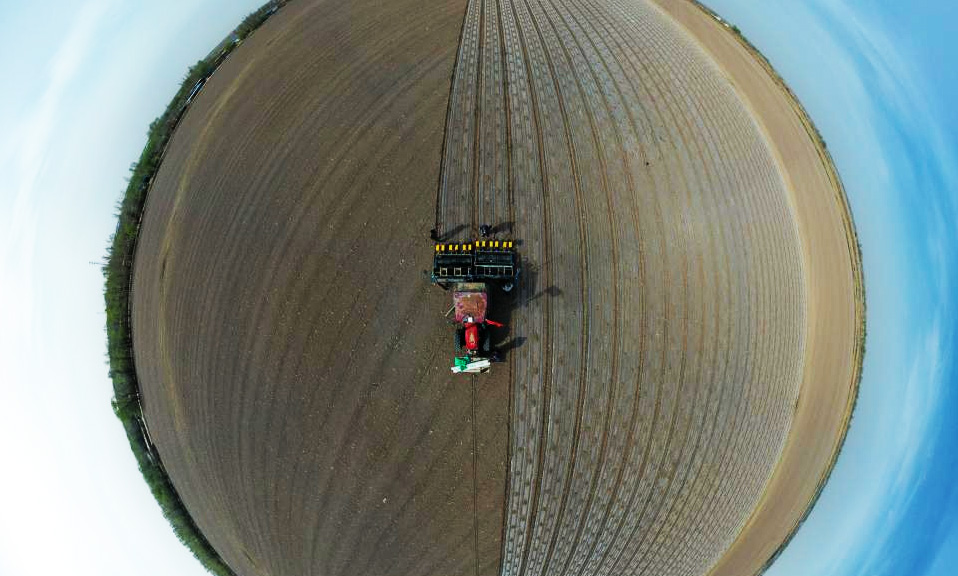Reading with Xi Jinping | What Is to Be Done?
“The highroad of history is not a sidewalk of the Nevsky Prospect. It passes all the way through open fields, dusty and muddy; at times it cuts across marshes or forests.”
In 1861, Russian philosopher Nikolay Gavrilovich Chernyshevsky wrote an open letter to strongly criticize the pro-protectionism American economist Henry Charles Carey. At the end of the letter, he wrote the abovementioned sentences, which effectively reveal the essence of the development of history: the evolution of human society will inevitably face setbacks and difficulties, but history always moves forward according to its own rules and nothing can stop that process.
Chernyshevsky was a great literary critic, philosopher, and revolutionary democrat of Russia in the 19th century. His works cover various topics, including philosophy, economics, aesthetics, literature and sociology. What Is to Be Done?, as a representative work of Chernyshevsky, has enjoyed a positive worldwide reputation.
On the evening of March 23, 2013, Chinese President Xi Jinping met with Russian sinologists, Chinese language students and media representatives in Moscow. Xi said that he was once inspired by Chernyshevsky’s work What Is to Be Done? when he was young, suggesting that given this reason it indicated the charm of an excellent culture.
In January 1969, 15-year-old Xi Jinping arrived in Liangjiahe, a village in Yan’an city in northwest China’s Shaanxi Province, having taken up work as a farmer in the locality. While living in a cave dwelling in Liangjiahe, Xi read the full-length novel What Is to Be Done? In order to strengthen his will, Rakhmetov, the leading character in the book, lives an ascetic life, even going so far as to sleep on a bed of nails, which left his body covered in blood.
Recalling his life in Liangjiahe, Xi said that he and his fellow compatriots thought that this was the right way to temper one’s willpower. They then decided to remove their cotton-padded mattresses and instead just slept on the bare brick beds. On rainy days,they would go outdoors to expose themselves to the rain; and on snowy days they went outside to rub snow onto themselves, taking cold showers beside the well all in an attempt to strengthen their willpower, which was all inspired by this book.
Xi has expressed his deep interest in Russian literature on many occasions. He has read a lot of works from Russian writers, such as Krylov, Pushkin, Gogol, Lermontov, Turgenev, Dostoevsky, Nekrasov, Chernyshevsky, Tolstoy, Chekhov, and Sholokhov. There are many wonderful chapters and episodes that he still remembers very clearly, Xi said.
You’re now engaged in a bad business because your environment demands it; but if we were to provide you with a different environment, you’d gladly become harmless, even beneficial, because you don't want to do evil without financial reward, and if it were in your own interest, you'd do anything at all, you'd even act decently and nobly if necessary.
For Xi and other Chinese readers around his age at the time, famous Russian literary works were important reading materials.
(Web editor: Zhang Wenjie, Du Mingming)
 Rare silver pheasants flock together in greater numbers to forage at Yishan nature reserve in east China's Jiangxi
Rare silver pheasants flock together in greater numbers to forage at Yishan nature reserve in east China's Jiangxi Young artist takes up brush to create lifelike paintings expressing mankind and nature’s harmonious co-existence
Young artist takes up brush to create lifelike paintings expressing mankind and nature’s harmonious co-existence Cutton farming in full swing in China's Xinjiang
Cutton farming in full swing in China's Xinjiang Spring scenery along section of Grand Canal in Beijing
Spring scenery along section of Grand Canal in Beijing





